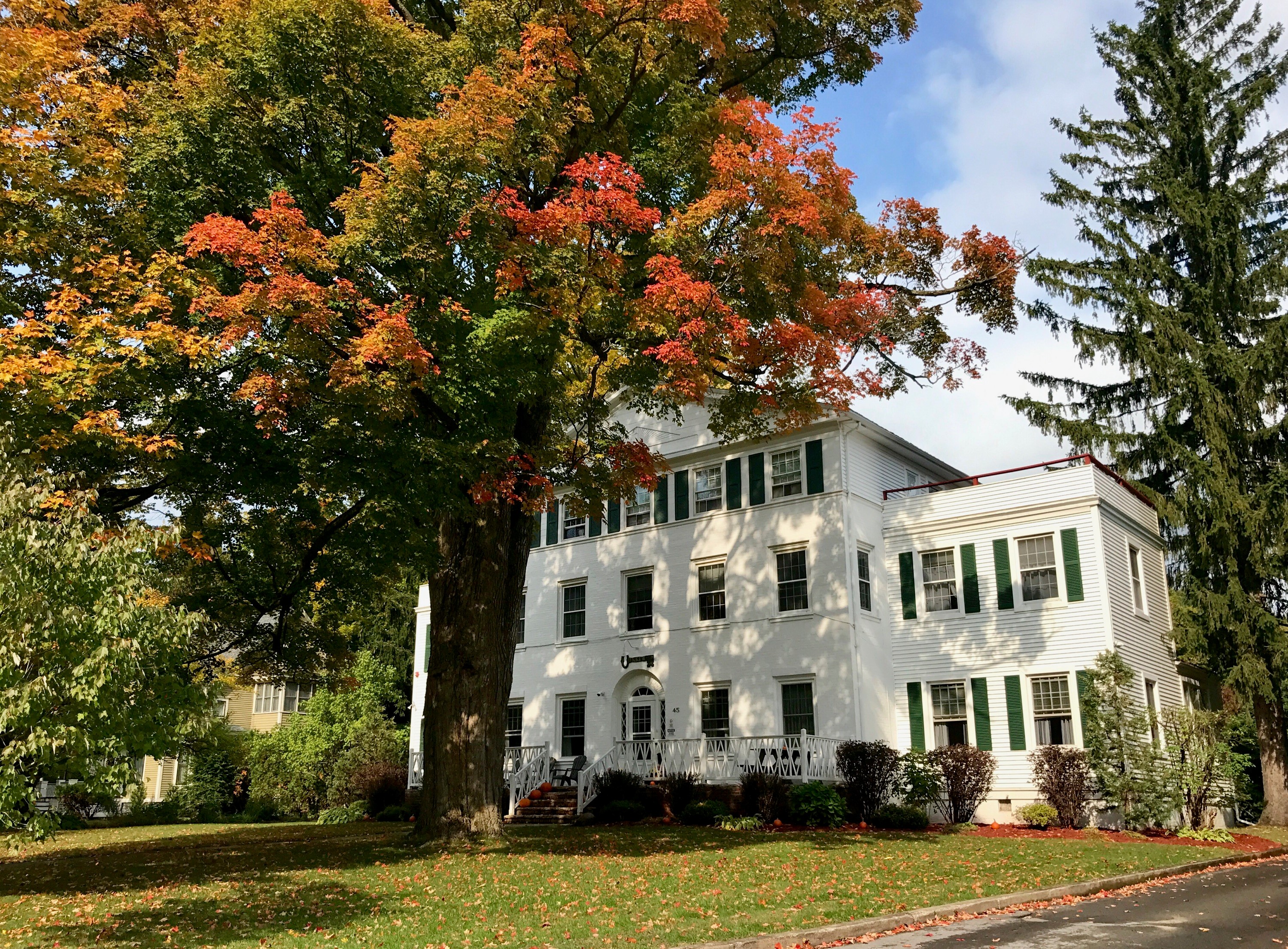According to ancient university lore, New York State law sees any sorority house with more than a certain number of female residents as a potential brothel. Luckily for St. Lawrence University sororities, there is a loophole. If they all sleep in the same room, no sister needs to spend a night behind bars.
Here lies the catch: according to attorney Ingrid Effman, this law doesn’t exist and possibly never has. “I’ve never heard of a law like that. It sounds unconstitutional to me.”
Chi Omega sister Amara Mitchell ’21 is aware that the rumor about university brothels is outdated, but attributes the sanctity of the cold rooms to tradition. “Way back when, if you had a house with all females the rooms couldn’t all have beds in them,” she says. “It takes some getting used to, but it’s tradition.”
On the contrary, Kappa sister Lizzie Ekberg ’21 was surprised to learn that it was not a law. “I could have sworn that it was a New York law. How could we not know?”
It is possible that the rumor stemmed from similar laws that protect landowners who rent to tenants. Effman cited a Supreme Court case involving the city of Schenectady, N.Y., and the local chapter of the Delta Chi Fraternity. The city filed a suit against the fraternity for renting out a house meant for single families because the local zoning law required that every house member be related.
This type of law is not unique across the nation, which is why myths like the one that circulated around the St. Lawrence campus are found on other college campuses. However, it seems that the sorority sisters do not mind the consequences of believing in it.
Ekberg says that most of her sisters like living in the rooms together. “They say it’s very quiet and a very comfortable area to be in,” she says. “Everyone seems to like being in there together.”
Mitchell agreed, saying that it is nice to have space designated just for sleep. “If every room had beds like a normal house, we would have no other space to just hang out with each other.”
These community bedrooms are called cold rooms because of their open window policy. Mitchell says that the rooms would be stuffy and uncomfortable otherwise. “It’s also scientifically proven that you sleep better in a colder room,” she says.
Once again, Ekberg said that she was under the impression that it was a legal requirement for the windows to be open. She says she heard that a county official stated the sorority can close their doors and windows. “I heard from one of my sisters that they said we’re allowed to close the windows now because of how cold it can get in the wintertime.”
Since there is no law about sorority windows, such a statement from any official is unlikely. This further exacerbates the power of rumors among university students, showing how the myth of university brothels were born in the first place.
Ekberg said that the only reason she had mixed feelings about the cold room was because she thought it was a law that discriminated against women. “ I just felt biased against it before because of the principle of the thing,” she says. Now that she knows the root of the rumor, she may be more enthusiastic about living in the cold rooms next year.
Mitchell says that regardless of the basis of the myth, she loves all the aspects of sorority life, including the cold rooms. “If you want to live in an inclusive environment with a bunch of girls with endless support for you, pledge a sorority.”



